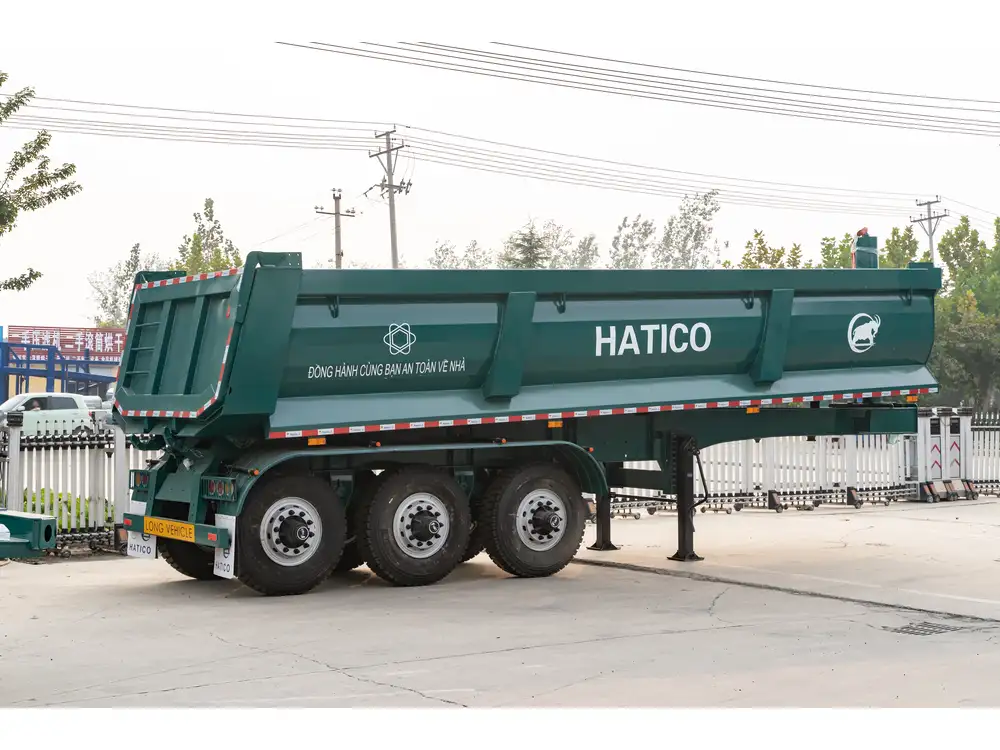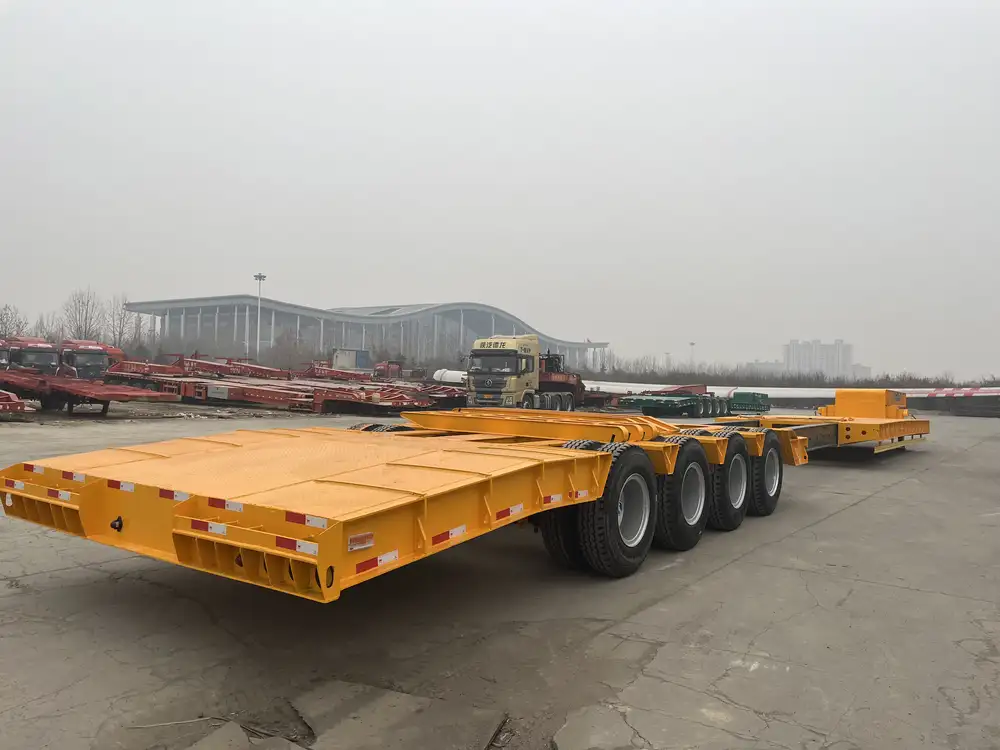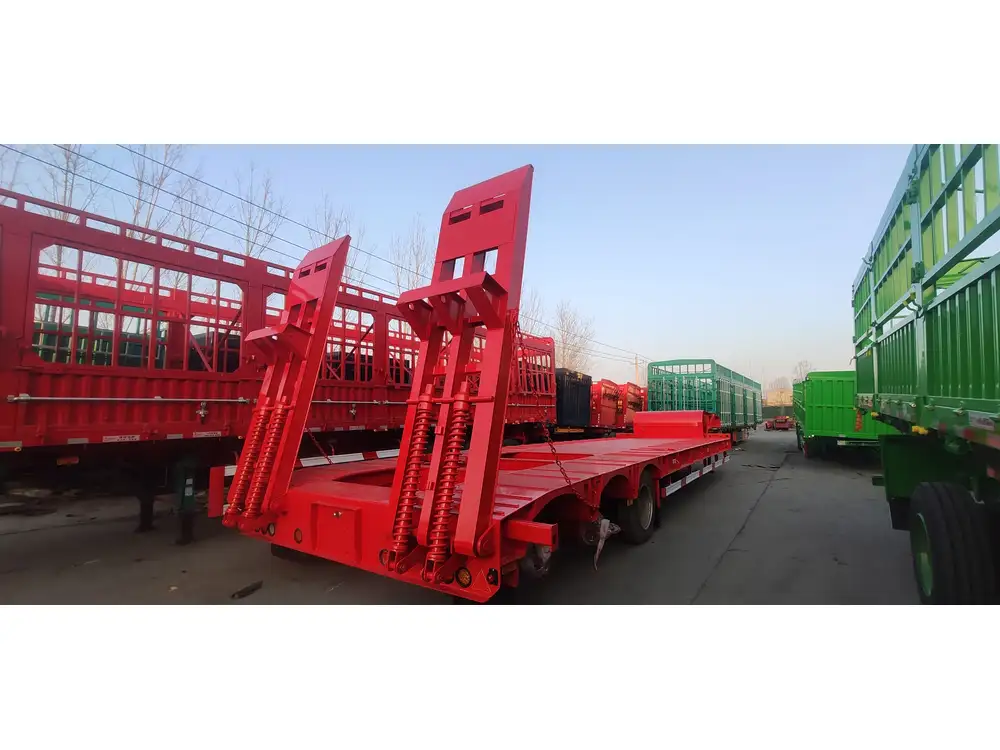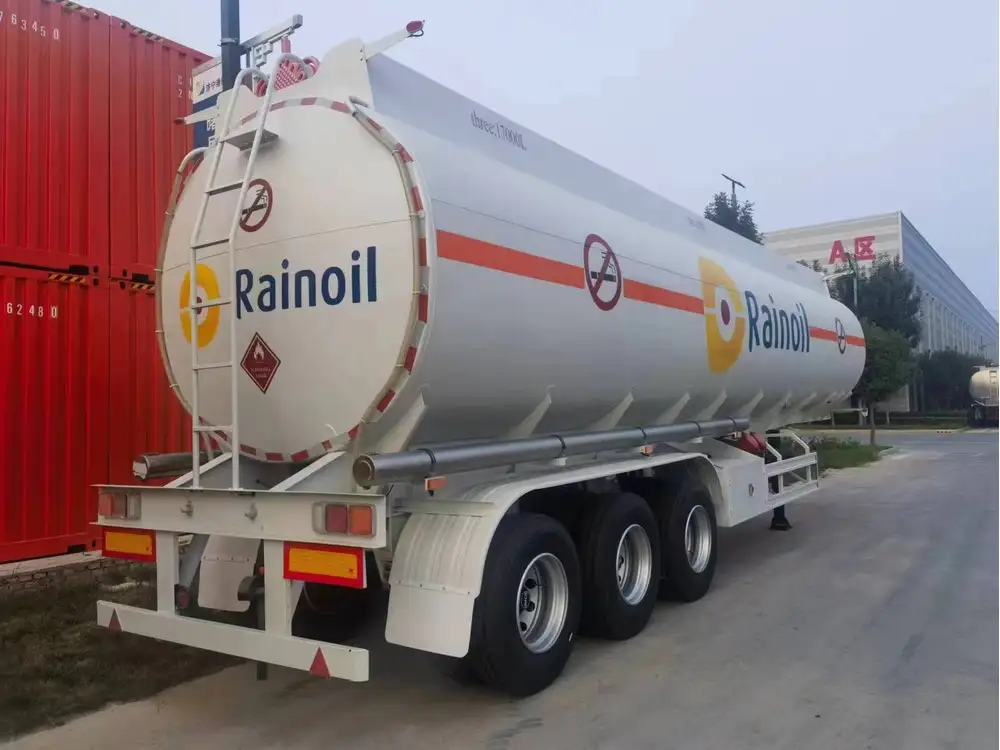Introduction
The New Jersey Turnpike is one of the busiest highways in the United States, serving as a major transportation artery for goods and commuters alike. As manufacturers of semi-trailers, it’s crucial to navigate the complex web of regulations governing the use of commercial vehicles on this vital thoroughfare. This detailed exploration aims to clarify whether semi-trailer trucks are permitted on the New Jersey Turnpike and what rules may apply.
Overview of the New Jersey Turnpike

Key Features and Importance
The New Jersey Turnpike stretches approximately 122 miles from the New York City metropolitan area to the Delaware Memorial Bridge. It is strategically situated, providing essential access for commercial trucking and personal vehicles traveling north-south along the Eastern Seaboard. The Turnpike plays an integral role in enhancing the economy by facilitating the smooth movement of freight and contributing to intermodal transport systems.
The Role of Weight and Size Regulations
The New Jersey Turnpike has specific regulations regarding the weight and size of vehicles, significantly impacting semi-trailer trucks. Understanding these regulations is vital not only for compliance but also for optimizing operational efficiency.
Table 1: Key Regulations for Semi-Trailer Trucks on the NJ Turnpike
| Regulation Category | Specifications |
|---|---|
| Maximum Gross Vehicle Weight | 80,000 lbs (standard limit for semis) |
| Overall Length | 75 feet (including trailer, subject to some exceptions) |
| Width Limit | 102 inches (8.5 feet) |
| Height Limit | 13.5 feet |

Types of Vehicles Permitted on the New Jersey Turnpike
Commercial Vehicles
While the Turnpike allows various vehicle types, commercial vehicles, including semi-trailers, have specific allowances and restrictions. They are integral to the state’s economy, transporting a wide range of goods from perishable items to heavy machinery.
- Semi-Trailer Trucks: Typically consisting of a tractor and one or more trailers, these trucks are commonly seen on the Turnpike, providing services for freight transport.
- Box Trucks: Often used for local deliveries, these trucks also have access but generally operate under different regulations.
- Flatbed Trailers: Used for transporting construction materials and large equipment, subject to specific loading and unloading zones.
Non-Permitted Vehicle Types
Understanding the restrictions is as essential as knowing what is permitted. Certain vehicles are notably restricted from using the Turnpike, which includes:
- Passenger buses (in select areas)
- Vehicles not compliant with safety standards
- Oversized vehicles exceeding specified regulations

Researching and Understanding Local Regulations
The Importance of Local Compliance
Navigating local regulations is paramount for any trucking operation. Multiple station checkpoints and violations could incur substantial fines or operational shutdowns. Organizations using semi-trailer trucks should be well-versed in local and state-mandated regulatory environments.
Here are key resources for understanding these regulations:
- New Jersey Division of Motor Vehicles (NJDVM): A valuable resource for state-specific trucking regulations.
- Federal Motor Carrier Safety Administration (FMCSA): Offers guidelines and regulations enforced at a federal level.
- New Jersey Turnpike Authority: Directly outlines regulations specific to the Turnpike.
Best Practices for Semi-Trailer Operations on the Turnpike

Driving Protocols and Safety Measures
Safety on the Turnpike must be prioritized. Given the high volume of commercial traffic, various strategies can optimize operational safety.
Routine Vehicle Inspections: Ensure vehicles are inspected regularly to remain compliant with safety and operational standards.
Driver Training Programs: Implement comprehensive training programs focusing on defensive driving, load securing, and emergency maneuvering.
Traffic Pattern Awareness: Familiarize operators with traffic patterns, peak hours, and notable construction zones along the Turnpike to optimize deliveries.
Validating Route Planning
Strategic route planning is fundamental for timely deliveries and cost efficiency. Utilizing GPS technology integrated with real-time traffic data can help avoid congested areas.
Table 2: Strategic Tips for Effective Route Management
| Strategy | Description |
|---|---|
| Real-Time Traffic Monitoring | Utilize applications for live traffic updates |
| Alternative Routes Planning | Identify backup routes in case of road closures |
| Load Weight Distribution Checks | Ensure proper load distribution to maintain the Center of Gravity |

Costs Associated with Operating on the NJ Turnpike
Toll Costs for Semi-Trailer Trucks
The Tolls on the New Jersey Turnpike are primarily determined by the vehicle’s weight class. The more substantial the weight, the higher the tolls.
- Flat Rates for Each Segment: This structure rewards careful route planning and scheduling to mitigate expenses.
- Discounted Rates: Regular users can apply for EZ Pass benefits, offering discounts on the tolls, which can be substantial over time.
Environmental Compliance Fees
In addition to tolls, semi-trailer operations must consider environmental fees, particularly if their vehicles are older models that do not comply with stringent emission standards.

Frequently Asked Questions (FAQs)
1. Are there weight restrictions for semi-trailer trucks on the New Jersey Turnpike?
Yes, the maximum allowable weight for a semi-trailer truck on the New Jersey Turnpike is 80,000 lbs, inclusive of the trailer and cargo.
2. What are the penalties for non-compliance?
Violations of the weight limits or other regulations can result in fines, vehicle impounding, and even potential safety assessments for the drivers and companies involved.

3. Can I drive a semi-trailer truck with hazardous materials on the Turnpike?
Yes, but only under specific regulations; it’s highly recommended to consult both the New Jersey Turnpike Authority and FMCSA guidelines regarding the transportation of hazardous materials.
4. Is there a time restriction for truck travel on the New Jersey Turnpike?
No specific time restrictions apply, but it’s advised to avoid peak traffic hours for optimal safety and efficiency.
Conclusion
Navigating the New Jersey Turnpike with semi-trailer trucks demands a thorough understanding of regulations, road conditions, and operational best practices. By adhering to the local and federal guidelines, trucking companies can ensure compliance, enhance safety protocols, and optimize operational efficiency. The importance of staying informed cannot be overstated; continuous education and proactive planning are vital in this dynamic regulatory environment. Maintaining an edge in the trucking industry is achievable by leveraging knowledge and technology to enhance productivity and ensure a smooth, compliant journey across one of America’s busiest transport corridors.



